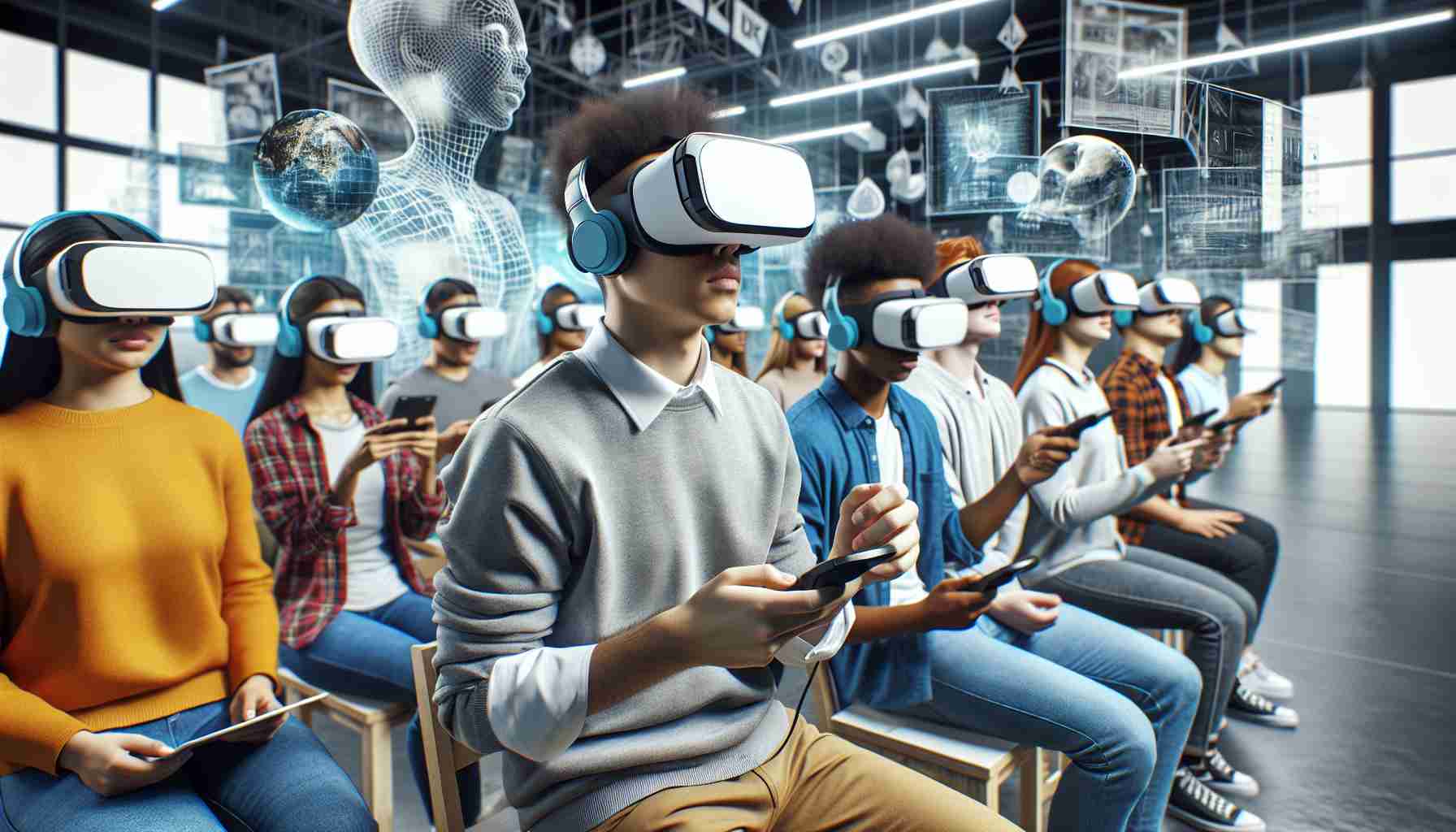In the bustling city of Shanghai, a cutting-edge virtual reality language learning initiative is shaping the future of education. This innovative project marks a collaboration between local schools, backed by a substantial grant from the Ministry of Education, and the Shanghai Institute of Modern Educational Technology. The primary goal is to enhance language education by leveraging immersive virtual reality experiences.
The core of this groundbreaking project lies in the development of interactive virtual reality environments that transport students to diverse linguistic settings across the globe. From exploring the bustling streets of Tokyo to engaging in conversations with locals in Paris, students are immersed in authentic language scenarios that facilitate practical learning experiences.
Rather than relying on conventional teaching methods, these virtual reality modules gamify language learning, catering to the individual needs of students. By integrating scenario-based challenges and practical tasks, students can effectively reinforce their language skills in an engaging and interactive manner. Preceding the virtual reality experiences are vocabulary exercises, followed by post-game activities like creating a digital language journal, offering a holistic learning approach tailored to language acquisition.
Unlike traditional classroom settings, Shanghai educators stress the active engagement of teachers in shaping the virtual reality curriculum. Through close collaboration with teachers, the program encourages peer-to-peer interactions and fosters collaborative learning environments. Each virtual reality session involves multiple student roles, prompting teamwork, communication, and the potential for replayability to deepen the learning experience further.
The genesis of this initiative stemmed from the recognition among language educators that conventional teaching materials were inadequate in nurturing language proficiency. Through extensive research and partnership, educators discovered the transformative potential of integrating virtual reality technology to enrich language learning outcomes.
Rather than quoting stakeholder opinions, it is imperative to recognize the broader implications and benefits of this virtual reality initiative. By implementing immersive and interactive learning experiences, Shanghai students are poised to excel in language acquisition, critical thinking, and cognitive development, ultimately setting a new benchmark for language education in the region.
FAQ Section:
1. What is the objective of the virtual reality language learning project in Shanghai?
The project aims to revolutionize language education by providing students with immersive virtual reality experiences to enhance language acquisition.
2. Who are the primary collaborators behind this groundbreaking initiative?
The project is a combined effort between local schools in Shanghai, funded by the Ministry of Education, and the Shanghai Institute of Modern Educational Technology.
3. What types of virtual reality modules will be accessible to students in this project?
Students will have access to short interactive modules featuring real-world language scenarios tailored to their language learning journey.
4. How does virtual reality technology benefit foreign language education?
Virtual reality technology enables students to engage in realistic language practice scenarios, facilitating better retention and application of language skills.
5. What is the level of teacher involvement in this virtual reality language learning project?
Teachers play a pivotal role in co-creating the virtual reality modules to ensure they meet the specific needs of students, promoting increased interaction and collaboration among learners.
6. What supplementary activities are planned as part of this initiative in Shanghai?
In addition to virtual reality experiences, the project will allocate resources for teacher training, summer enrichment programs, and additional support strategies to enhance language learning outcomes.
Glossary:
– Virtual Reality: A computer-generated environment that simulates real-world experiences and interactions, typically accessed through specialized equipment.
– Interactive Module: A concise educational segment focused on a particular topic or skill.
– Grant: Financial assistance or funding provided for specific projects or initiatives.
Sources:
– [Ministry of Education, China](https://www.moe.gov.cn/)
– [Shanghai Institute of Modern Educational Technology](https://www.simedt.cn/)
– [Shanghai Municipal Education Commission](https://www.shec.gov.cn/)
The source of the article is from the blog xn--campiahoy-p6a.es






